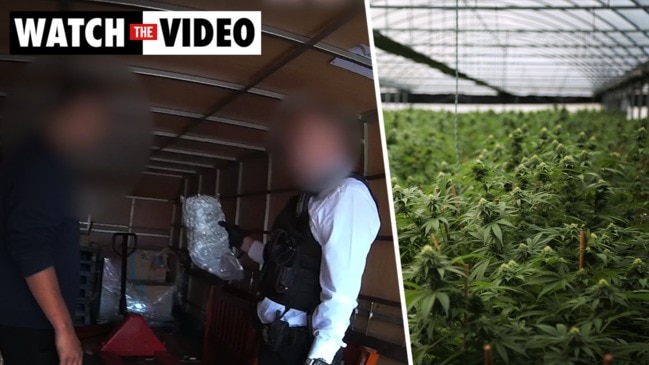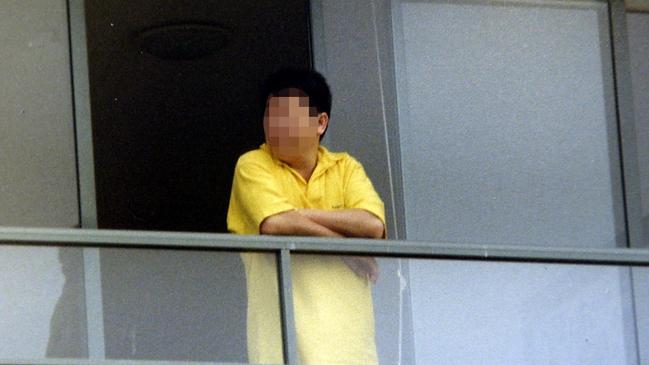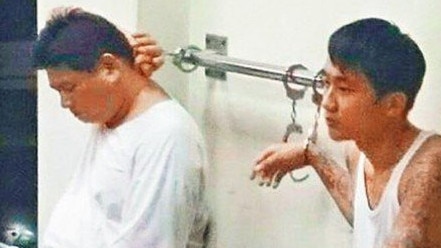Notorious Australian drug cartel kingpin emerges as key figure in global drug trade
There are fears the Asian drug gangs of the 1990s are making a comeback with one of Australia’s most notorious drug bosses suspected of re-emerging on a global level. WATCH THE VIDEO

Crime in Focus
Don't miss out on the headlines from Crime in Focus. Followed categories will be added to My News.
Exclusive investigation: One of Australia’s most notorious drug cartel kingpins, whose jailing once saw a national drugs drought, is suspected of re-emerging as a top global-linked crime boss, fuelling fears of a return of the Asian crime cartels of the 1990s.
But according to law enforcement sources, unlike 30 years ago the gangs are not battling each other for turf but rather forging new alliances to the extent the length of the eastern seaboard is now suspected to be networked by a “super syndicate”.
The Chinese-born Australian now aged in his 60s was jailed in the 1990s, ending two decades of trafficking much of the heroin that flooded Australia in that era, netting him half a billion dollars which he laundered through a network of Hong Kong and Guangdong in southern China banks.
His jailing was at the time noted by the Australian Crime Commission as a key reason for a national heroin drought the following year, forcing a rise in the street value of the drug from $25 a gram to up to $120 a gram.
But News Corp Australia has learnt since the ending of his supervised parole in 2015, he has stunned authorities by not only suspected of having reconnecting with the criminal milieu but emerging again as a leading criminal facilitator between crime groups.

Law enforcement intelligence now lists the man as one of 16 Australian Priority Targets (APOT) linked to the domestic illicit drug trade at a transnational level.
Among his contacts are former colleagues from Asian Triad groups 14k and Wo Sing Wo both here and in Hong Kong who are no longer street level youths but successful businessmen.
He is also believed to be reconnecting with some of the 30 Vietnamese criminal figures who once led his distribution network.
He moves on an Australian passport having been granted residency in 1981 between operations in Sydney, Melbourne and Asia, notably in his native Hong Kong.
Among suspicions about the man, one of his contact now is with elusive Chinese-born Canadian national Tse Chi Lop and multiethnic Triad group Sam Gor, formed out of an alliance of five Triad groups to form a super syndicate to co-ordinate the production and movement of the vast bulk of the illicit substances about Asia Pacific notably to Australia, Japan and New Zealand.

Much of the movements have been via motherships offloading well offshore to smaller vessels including yachts and fishing boats to reach mainland Australia.
According to one Australian law enforcer, the super syndicate, while not actually one cartel, is made up from informally but highly complex networks and did involve senior figure heads of five key Triad groups including Sun Yee On, Big Circle Gang Wo Sing Wo, 14k and the United Bamboo Gang (UBG), reportedly having 10,000 members mostly from Taiwan and closely tied to the Chinese Nationalist Party.
Tse is listed as top of a list of 17 names on Australia’s law enforcement’s Regional Priority Target (RPOT) list, deemed to be the leading international figure in trafficking methamphetamine and heroin to Australia via his local contacts.
Another on that list is ex Comanchero bikie boss Mark Buddle living in exile between Dubai, Turkey and Greece as he is sought for questioning by authorities over a homicide and unrelated drug plots.
There are also two other Chinese-Canadian nationals with Triad affiliations.
Operation Kungur was specifically created to “disrupt and dismantle” transnational criminal groups that it noted had evolved in the past 30 years specifically targeting Tse and his Australian contacts.
AFP assistant commissioner (crime command) Peter Crozier declined to talk specifically about groups or individuals but said turf wars between groups no longer existed as groups worked with common purpose.
“The key thing is the crime commodity that they are looking to exploit, the reality is crime at the moment gentrifies and to get to market they will associate with anyone who can help them,” he said, adding groups were now “commodity agnostic” and would traffic anything that made money but mostly drugs.
MORE NEWS:
Deadly online craze entrapping Aussie women
